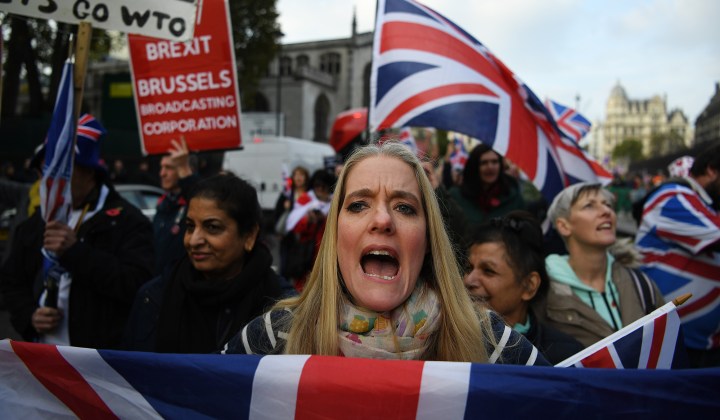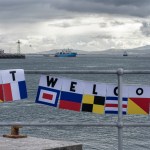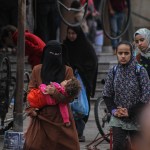‘LONDONGRAD’
UK’s ‘Russian report’ blasts political leadership and the intelligence services

The result of a seven-month-long investigation was widely billed to be a damning expose of Moscow’s meddling in the 2016 Brexit referendum. But, instead, the committee turned its biggest guns on its own government. The committee said it had been unable to establish the truth or otherwise of those allegations because it had no evidence from the intelligence agencies on which to base any conclusion.
“We have the finest secret service operating in this country. It belongs to the Russians,” a spoofed-up British Prime Minister Harold MacMillan solemnly tells Parliament in a skit by Peter Sellers about the Profumo affair of the early 1960s.
In that scandal, John Profumo, MacMillan’s Secretary of War, was caught having an affair with 19-year-old callgirl Christine Keeler who in turn was involved with Soviet naval attache Yevgeny Ivanov – thereby suggesting a security breach.
One was somehow reminded of the Profumo imbroglio while listening to the House of Commons intelligence and security committee announcing the outcome of its highly anticipated “Russia Report” on Tuesday 21 July.
The result of a seven-month-long investigation was widely billed to be a damning expose of Moscow’s meddling in the 2016 Brexit referendum. But, instead, the committee turned its biggest guns on its own government, blasting the political leadership and the intelligence services for having “actively avoided” looking into obvious suspicions of interference by Vladimir Putin’s government.
And so, as a result of that failure, the committee said it had been unable to establish the truth or otherwise of those allegations because it had no evidence from the intelligence agencies on which to base any conclusion. And it had been even less able therefore to determine whether alleged Russian interference could have influenced the outcome of the referendum – in which Britons unexpectedly decided, by a narrow margin, to leave the EU – which Britain eventually did in 2020.
The committee said it should have been obvious to the government and its intelligence agencies that they should investigate such meddling in the Brexit referendum because of “open source” evidence of interference in the 2014 Scottish independence referendum – and also in elections elsewhere, such as in France and the US in 2016.
The committee identified a lack of coordination among several government ministers and a “complex wiring diagram” of entanglement and overlap among intelligence agencies responsible for detecting and countering the Russian cyber-attacks which are suspected to have been directed at the referendum.
As a result of these organisational problems, an exaggerated fear by the intelligence agencies of interfering in domestic politics and the government’s deliberate decision to ignore the problem, “no one defended the democratic process,” said MP Kevan Jones. MP Stewart Hosie said the committee demanded “immediate action” by the government to order the intelligence agencies to investigate these allegations now as well as an overhaul of the intelligence systems and legislation.
The government’s failure to conduct a probe at the time or since – and therefore the committee’s inability to conclude whether or not Russia had meddled in the referendum – has created something of a diplomatic embarrassment for Britain.
The absence of the widely-expected smoking Russian gun targeting the Brexit referendum in the report has rather let Moscow off the hook, giving its foreign ministry more space to dismiss the report as just more “Russophobia”.
And the aggressive Brexiteer Nigel Farage tweeted: “So, no evidence of Russian interference in the referendum. Some serious apologies are due,” referring to the allegations of some “remainers” that the Russians had helped to secure a pro-Brexit vote.
The committee’s report also accuses the British government of allowing many Russian oligarchs, including some living in Britain, to use the UK to whitewash illicit finances through what it called the “London laundromat”.
Moscow’s response conveniently forgets the many other allegations in the report of other Russian meddling in British politics such as the influence-peddling in the Scottish referendum. Last week, UK Foreign Secretary Dominic Raab said Russia had also interfered in 2019’s general election – though the intelligence and security committee said it had been shown no evidence of such meddling and suggested that Raab had been trying to pre-empt its own report.
The committee also said that although it could not expose its sources there was plenty of open-source evidence which pointed to Russian attempts to influence political opinion in Britain and elsewhere.
Jones said because of the UK’s paper-based voting system, it would have been unlikely for Russian cyber attacks to alter the actual referendum vote. But he added that Russian cyber bots and trolls tried to influence voters by amplifying existing divisions as they had in other elections.
“Did it influence the way some people voted? That would be difficult to prove,” he said.
The committee’s report also accuses the British government of allowing many Russian oligarchs, including some living in Britain, to use the UK to whitewash illicit finances through what it called the “London laundromat”.
The UK government had “welcomed Russian money with open arms,” Jones said. Hosie added that the committee had heard allegations that a number of members of the House of Lords had interests with Russian companies. These should be investigated, he said. And the lords should be subjected to the same rule as members of the House of Commons who are obliged to disclose gifts of more than £100.
The MPs said the committee had also asked the question, why Britain? It answers in part that the UK was targeted as part of a wider Russian attack on Western countries to try to sew disunity and to discredit the democracy camps.
But the report also says; “It appears that Russia considers the UK one of its top Western intelligence targets: while we may not experience the level and type of threat that countries on Russia’s borders suffer, witnesses have suggested that we would sit just behind the US and NATO in any 1 priority list.
“This is likely to be related to the UK’s close relationship with the US, and the fact that the UK is seen as central to the Western anti-Russian lobby.
“This perception will have been reinforced by the UK’s firm stance recently in response to Russian aggression: following the UK-led international response to the Salisbury attack – which saw an unprecedented 153 Russian intelligence officers and diplomats expelled from 29 countries and NATO – it appears to the Committee that Putin considers the UK to be a key diplomatic adversary.”
In the Salisbury attack, on 4 March 2018, Sergei Skripal, a former Russian military officer and double agent for the UK’s intelligence services, and his daughter Yulia Skripal were poisoned in the city of Salisbury, England with a Novichok nerve agent which the UK said was administered by Russian agents. Moscow denied involvement. DM



















